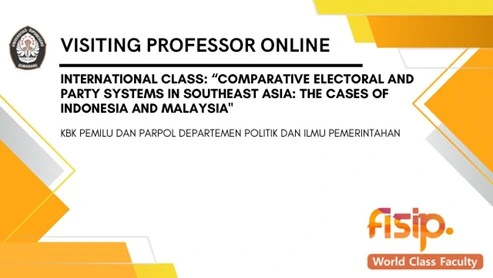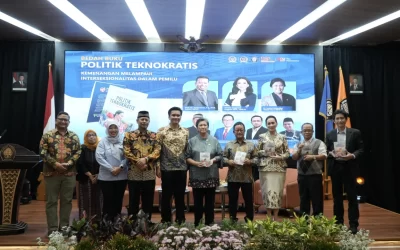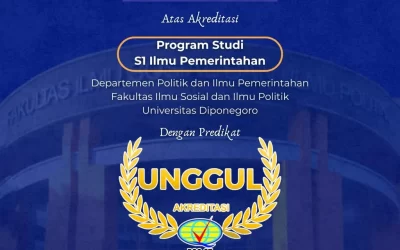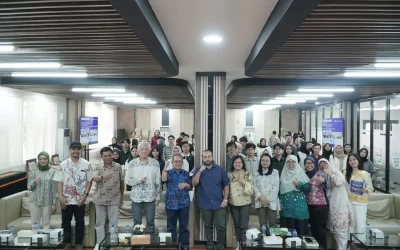In order to support the achievement of the Sustainable Development Goals (SDGs), in particular in the aspect of building infrastructure resilient education, encouraging? innovation, and improving the quality of education inclusively, the Department of Politics and Science of the Faculty of Social and Political Sciences, Diponegoro University, will organize International Classes online with? the present Assoc. Prof. Dr. Suyatno Ladiqi from the Faculty of Law & International Relations, Universiti Sultan Zainal Abidin, Malaysia, on Tuesday, June 3, 2025, at 09.00–12.00 WIB.
Activity: This is part of the internationalization agenda on campus through a targeted Visiting Professor (VP) program to push global collaboration in the field of teaching, research, and innovation. Through this program, FISIP UNDIP is committed to strengthening international academic involvement, expanding networking, and promoting Lecturers at Diponegoro University to be involved in the same research and teaching across the country.
In the international class titled “Comparative Electoral and Party Systems in Southeast Asia: The Cases of Indonesia and Malaysia”, participants were invited to understand the dynamics of elections and political party systems in the two countries with distinctive socio-political backgrounds.
System Elections and Systems Malaysian and Indonesian political parties:
Elections in Indonesia are held to elect 580 members of the DPR and 152 members of the DPD, elect the president and vice president ( presidential election ), and choose members of the provincial DPRD and district/city DPRD, which are implemented simultaneously. In addition, at different times, there are simultaneous regional elections for choosing the governor and deputy governor, as well as choosing the regent /deputy regent and mayor /deputy mayor. The election of the DPR and DPRD uses system proportional list of candidates open (The open-list proportional representation system), DPD elections use system district representative many (single non-transferable vote system), Presidential Election use The two – round system, and regional elections use system majority simple (The First Past The Post system). Indonesia uses a presidential system of government and a multi-party system. Many parties that have significant strength, with 4% threshold used for the 2024 Election to pass eight-party politics in the DPR, PDIP leads, followed by Golkar, Gerindra, PKB, Nasdem, PAN, PKS, and Demokrat.
Elections in Malaysia were held to elect 222 members of the People’s Council, using the simple majority system (The First Past the Post system). In addition, there is an election assembly and a state legislature? , usually held simultaneously. Malaysia adheres to system government parliamentary and system multi- party political party. In accordance with the system, the government’s parliamentary party adopts?? a policy that gives the chair with the most votes in the House of Representatives the right to form a government, with an elected Prime Minister from the member parliament. Some parties often form coalitions to reach a majority in parliament and form a government. Landscape of adult Malaysian politics. This displays three big coalitions: Pakatan Harapan, Barisan Nasional, and Perikatan Nasional. Each represents a different ideology and has a leader. UMNO, PAS, DAP, PKR, Bersatu are party key.
Elections in Indonesia and Malaysia are still facing the challenge of money politics threatening the integrity of elections.
Comparison Practice Political Electoral :
Students are guided to identify the differences in fundamental practices in both countries, such as the role of media, ethics in politics, and mass mobilization based on identity.
Activity This is followed by hundreds of students, as well as knowledge, government, science, and politics lecturers from various partner universities. It is expected that through the Visiting Professor Lecture Series, these students will obtain a broad outlook, be capable of thinking critically about the political system in their country alone, and have open opportunities to work in the same academic field across countries.
For further information, contact :
Department of Politics and Science, Government of the Faculty of Social and Political Sciences,
Diponegoro University
Email: fisip@undip.ac.id
Phone: + 024 – 7465407





0 Comments